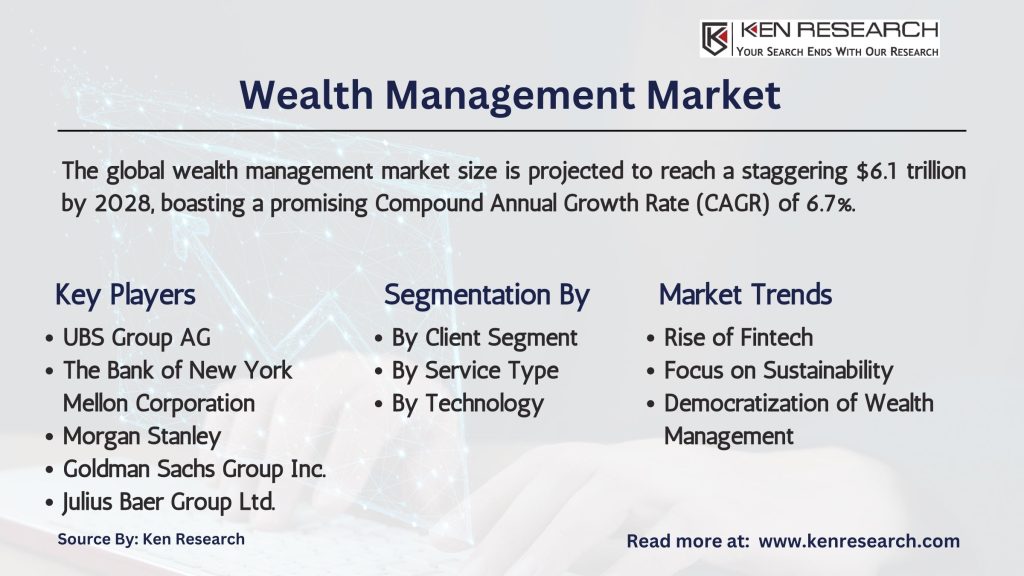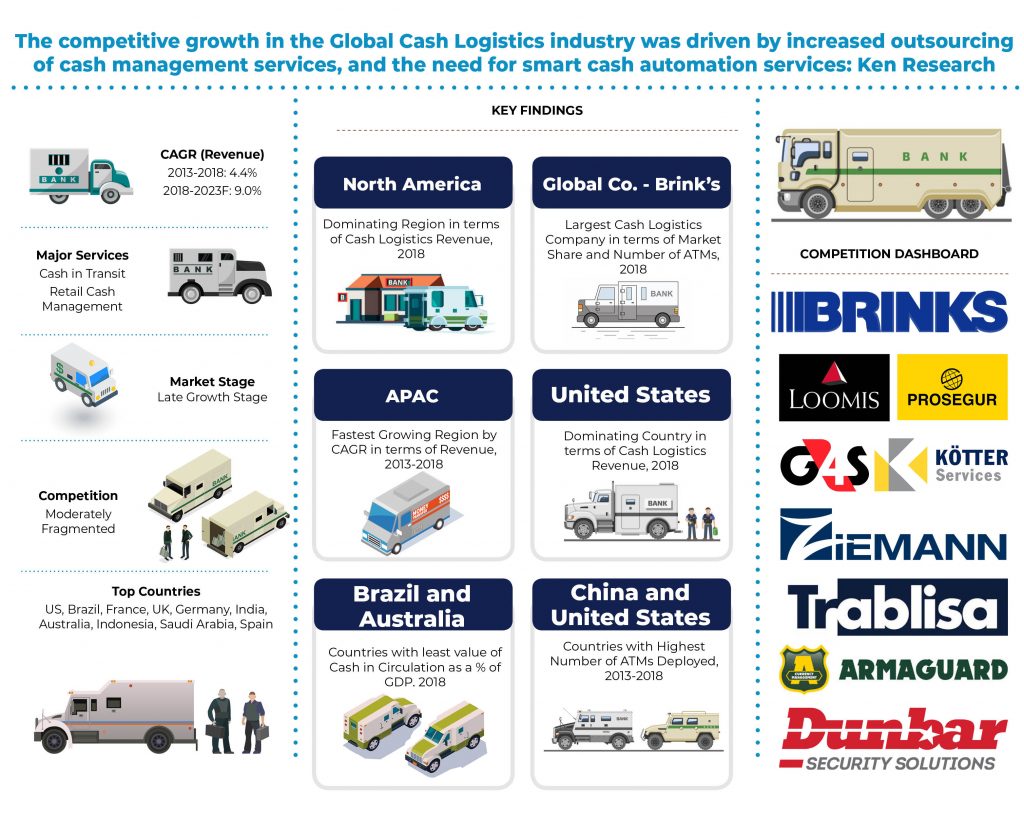The wealth management industry serves as a financial compass for individuals and families seeking to navigate the complexities of wealth creation, preservation, and distribution. From managing investment portfolios to estate planning, wealth managers provide personalized guidance and strategies to help clients achieve their financial goals. This blog explores the wealth management market in 2024, delving into its size, segmentation, key trends, and the evolving landscape of the wealth management sector.
Guiding the Affluent: The Power of Wealth Management
The asset and wealth management industry plays a crucial role in global financial markets. Several factors contribute to its ongoing significance:
- Rising Affluence: A growing global middle class and wealth accumulation amongst existing high-net-worth individuals (HNWIs) drive demand for wealth management services.
- Increased Financial Complexity: The increasingly complex financial landscape, with a plethora of investment options and regulations, necessitates professional guidance for effective wealth management.
- Focus on Long-Term Goals: Wealth managers help clients plan for retirement, manage intergenerational wealth transfer, and achieve other long-term financial objectives.

The global wealth management market size is projected to reach a staggering $6.1 trillion by 2028, boasting a promising Compound Annual Growth Rate (CAGR) of 6.7%. This growth reflects the increasing demand for personalized wealth management strategies and the growing pool of potential clients.
A Segmented Sea of Wealth: Wealth Management Market Segmentation
Understanding the wealth management market segmentation helps identify specific areas of focus and growth within the industry:
- By Client Segment:
- Mass Affluent: Individuals with investable assets between $100,000 and $1 million represent a rapidly growing segment. Wealth management platforms designed for this segment offer automated investment solutions and digital tools for easier access. The wealth management platform market is witnessing significant growth due to this segment’s needs.
- High-Net-Worth Individuals (HNWIs): Individuals with investable assets exceeding $1 million require sophisticated wealth management strategies and personalized service. Wealth management portfolio analysis is crucial for this segment, considering their complex financial needs.
- Ultra-High-Net-Worth Individuals (UHNWIs): Individuals with investable assets exceeding $30 million require highly specialized wealth management services, often encompassing estate planning and philanthropic giving.
- By Service Offering:
- Investment Management: Core service of selecting and managing investment portfolios aligned with client risk tolerance and financial goals.
- Financial Planning: Creating a comprehensive financial plan encompassing budgeting, retirement planning, and tax optimization.
- Estate Planning: Developing strategies for wealth transfer, asset protection, and minimizing estate taxes.
- Trust and Fiduciary Services: Managing trusts and acting as fiduciaries to ensure assets are handled according to client wishes.
- By Distribution Channel:
- Private Wealth Management Firms: Cater to HNWIs and UHNWIs, offering personalized services and access to a wide range of investment options.
- Private Banks: Wealth management is often integrated with traditional banking services, providing a convenient one-stop solution.
- Robo-advisors: Digital platforms offering automated investment solutions at lower fees, particularly attracting mass affluent investors. Wealth management research reports highlight the growing popularity of robo-advisors as a convenient and cost-effective option.
- Independent Financial Advisors (IFAs): Provide personalized wealth management services independent of any specific financial institution.
Take a look at: Wealth Management Industry: Size, Segmentation and Future Trends
The Captains of the Industry: Top Players and Trends Shaping Wealth Management
Several established financial institutions and independent firms are key players in the wealth management market:
Some of the top players in the wealth management market include:

- UBS Group AG
- The Bank of New York Mellon Corporation
- Morgan Stanley
- Goldman Sachs Group Inc.
- Julius Baer Group Ltd.
Wealth management market trends influencing the industry include:
- Rise of Fintech: Integration of technology, such as artificial intelligence and big data analytics, is transforming wealth management by offering personalized investment recommendations and streamlining processes. The wealth management software market is booming as firms invest in technology to enhance client experience and operational efficiency.
- Focus on Sustainability: An increasing number of investors are seeking sustainable investment options that align with their environmental, social, and governance (ESG) values. Wealth managers are incorporating ESG considerations into their investment strategies.
- Democratization of Wealth Management: The rise of robo-advisors and digital platforms is making wealth management services more accessible to a wider range of investors, particularly the mass affluent segment.
A Collaborative Future: Wealth Management Industry Outlook
The wealth management industry outlook hinges on collaboration between various stakeholders:
- Wealth Management Firms: Continued investment in technology, talent, and innovative service offerings to cater to evolving client needs.
- Financial Technology (Fintech) Companies: Collaboration with wealth management firms to develop and integrate new technologies that enhance efficiency and personalize wealth management strategies.
- Regulatory Bodies: Implementing regulations that foster innovation while maintaining market stability and investor protection.
By working together, these stakeholders can ensure the wealth management industry remains a vital resource for individuals and families navigating the complexities of wealth creation and management.Looking ahead, the wealth management market is poised for continued growth, with a projected CAGR of approximately 6.7% reaching an estimated $6.1 trillion by 2028. This growth will be driven by a rising affluent population, increasing demand for holistic wealth management solutions, and the strategic integration of technology.
You can also read about: Opportunities and Challenges in the $3.48 Trillion Wealth Management Market

